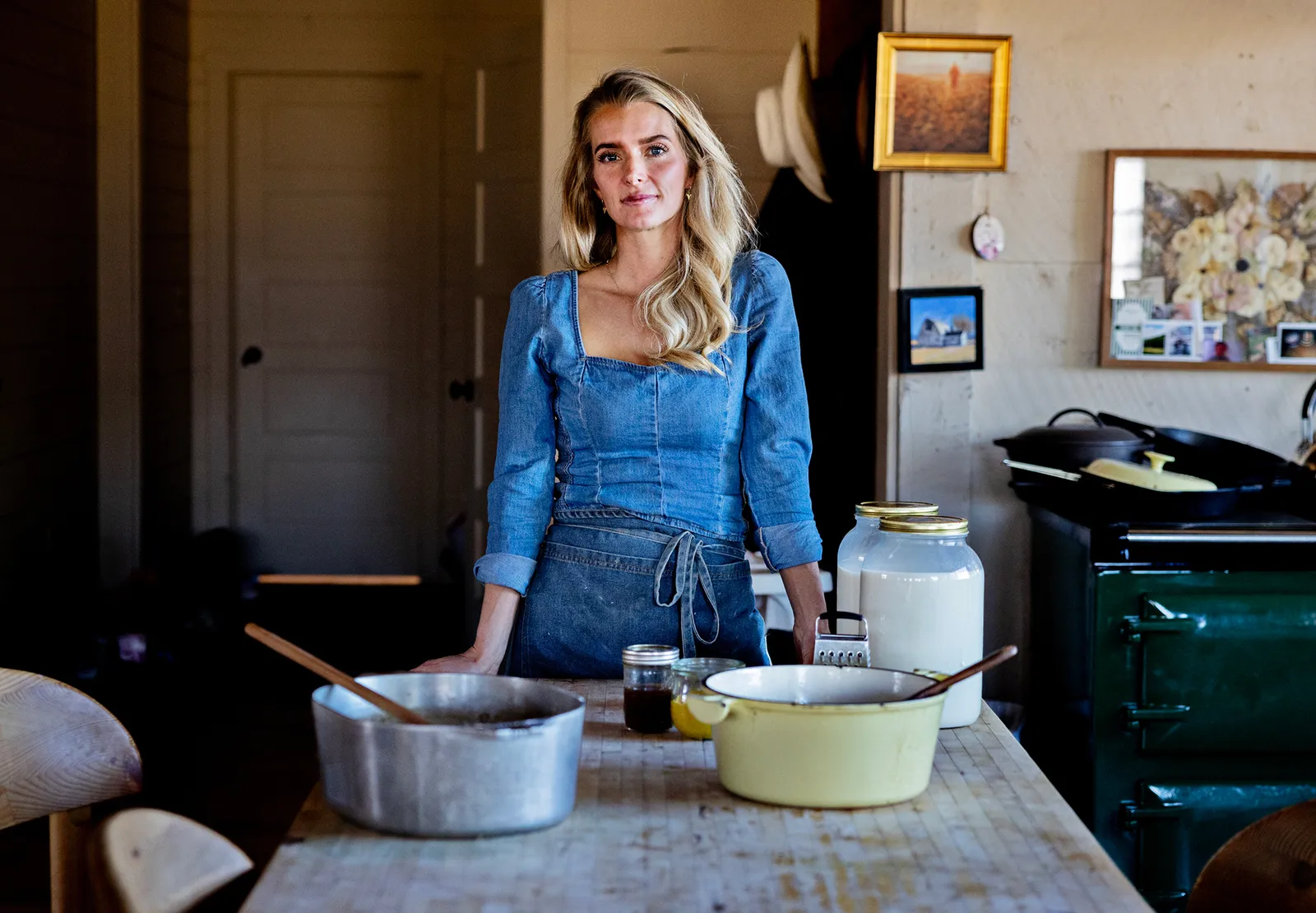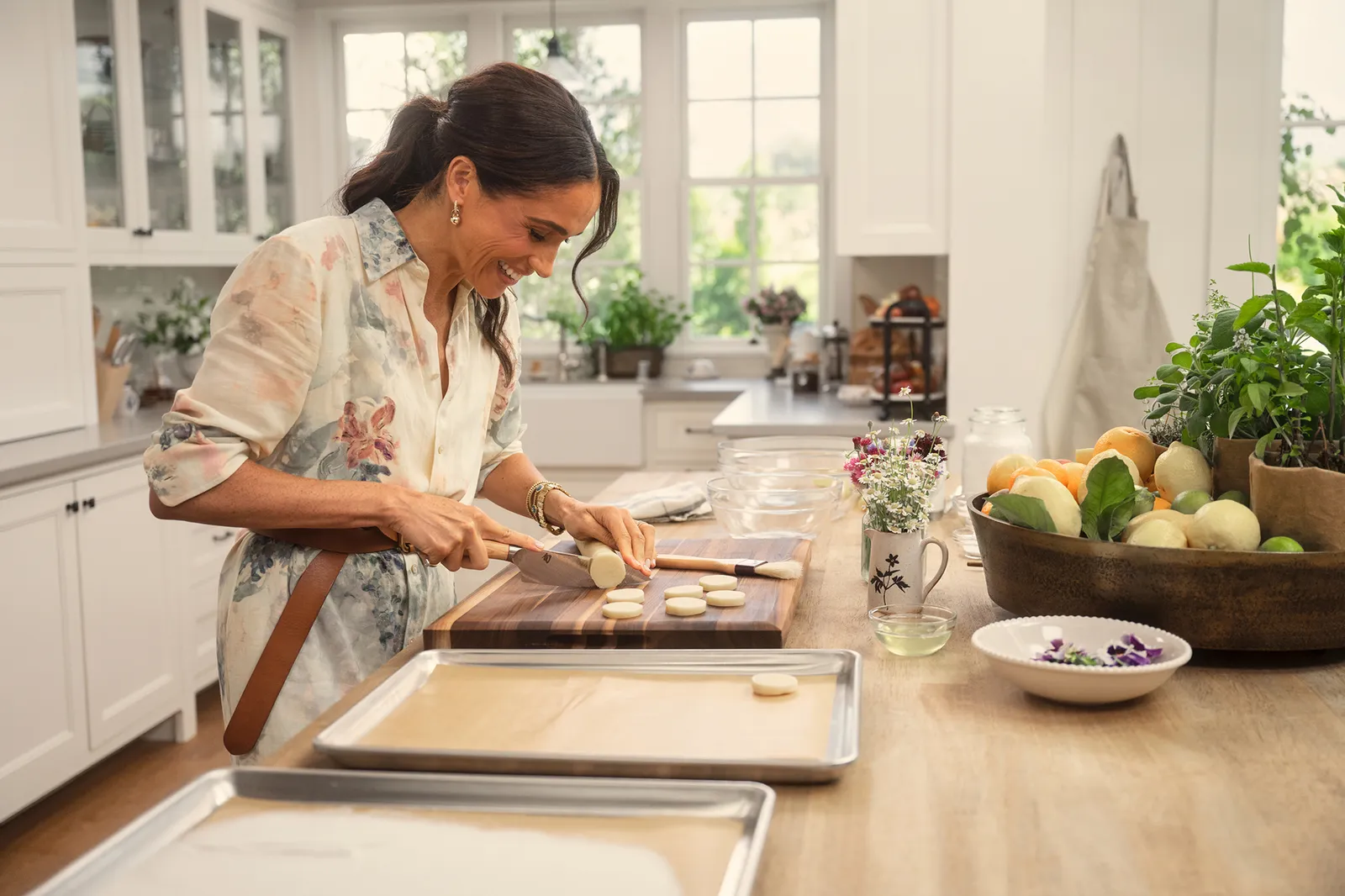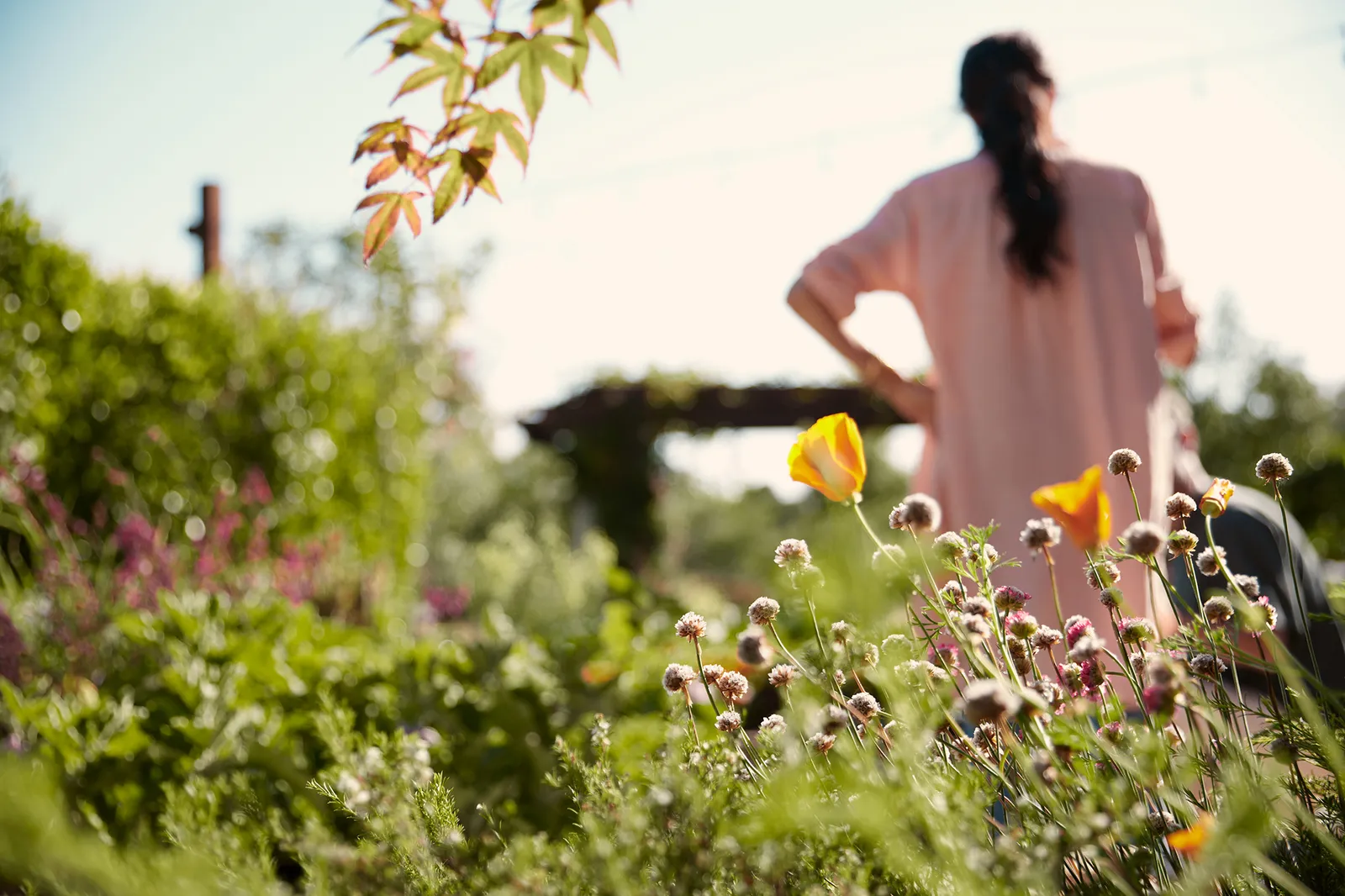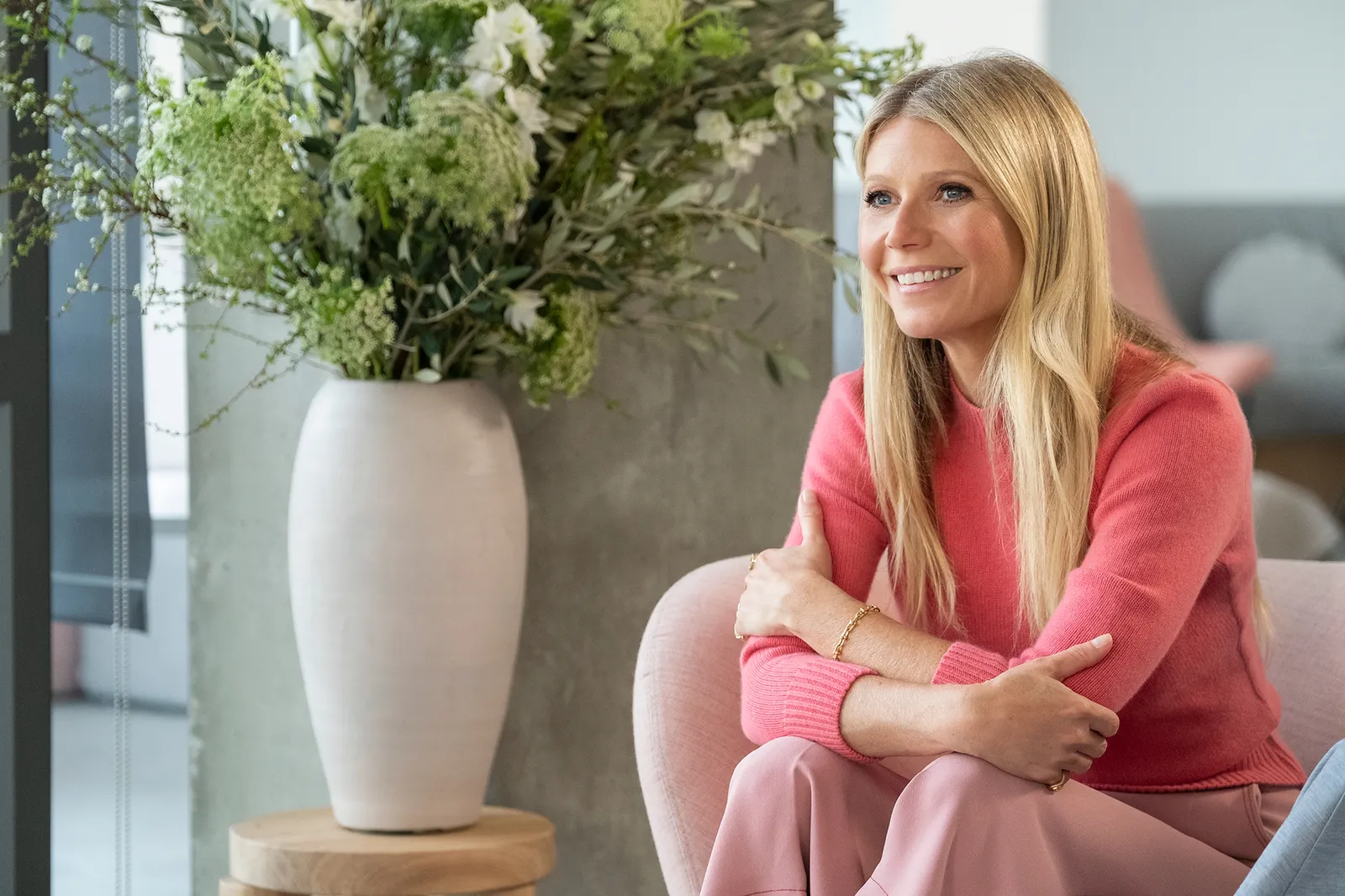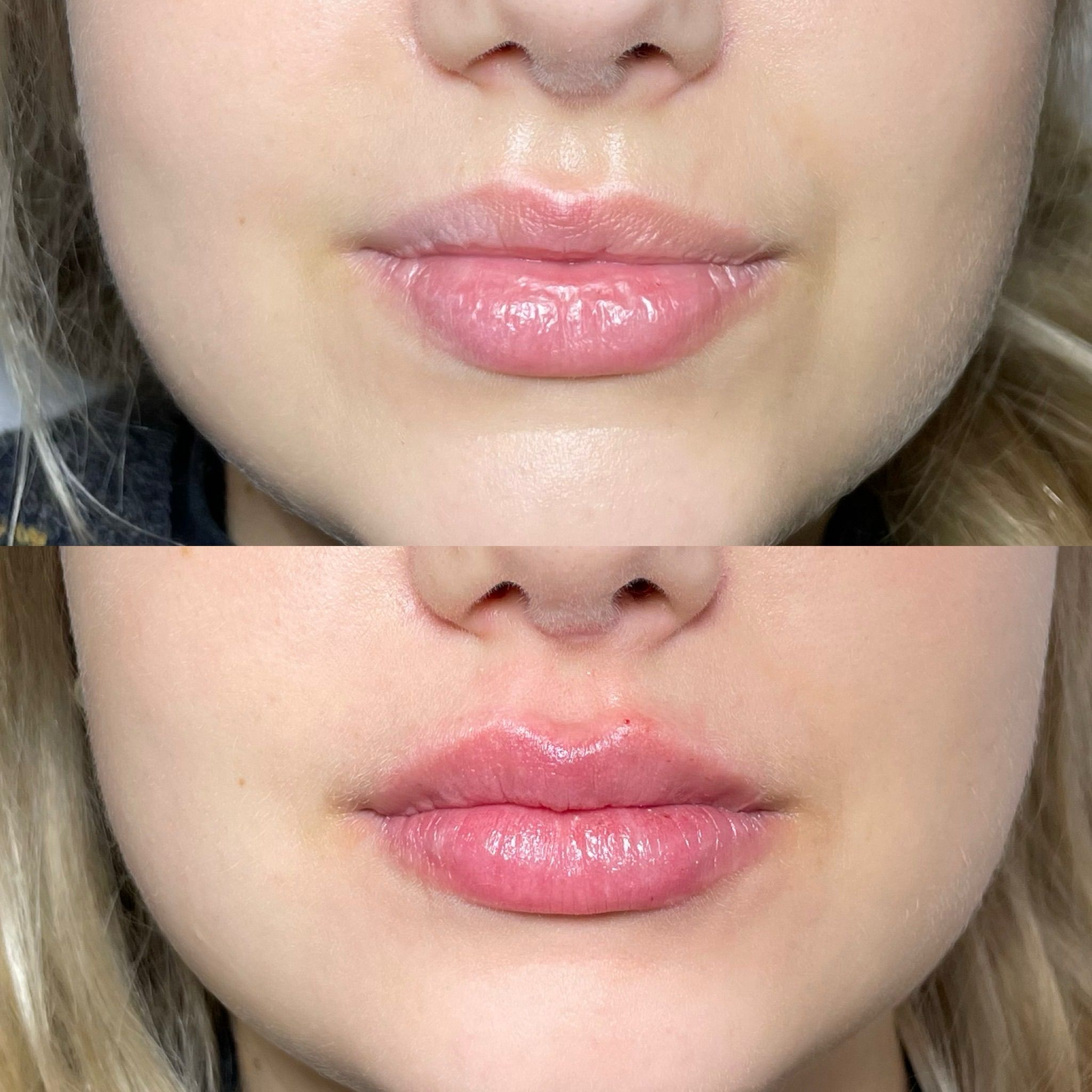In 2021, the world glimpsed the personal life of Meghan Markle and Prince Harry like never before, when a CBS crew filmed their lush Santa Barbara home for the now-infamous Oprah Winfrey interview. Amid ocean breezes, manicured hedges, and Montecito tranquility, one unexpected feature captured public attention: a charming backyard chicken coop dubbed “Archie’s Chick Inn.”
What seemed like an endearing parenting moment was actually the start of something much more symbolic. Over the next few years, the chicken coop would become a cultural artifact — not just for Meghan, but for a growing movement of lifestyle entrepreneurs who combine domesticity with digital-era branding. Alongside traditional homemaking elements like baking and gardening, this new era of “tradwife mompreneurs” is blurring the line between domestic nostalgia and capitalist ambition.
Meghan Markle isn’t the only public figure embracing the kitchen table as both a family center and a business incubator. Alongside her are women like Gwyneth Paltrow and Hannah Neeleman of Ballerina Farm — all redefining modern womanhood through homespun aesthetics, wellness rituals, and small-batch entrepreneurship.
Let’s explore how these figures are shaping — and subverting — the tradwife label, and what it says about the future of women-led businesses and cultural influence.
From Chickens to Branding: Meghan Markle’s Lifestyle Pivot
The Rise of “As Ever”
When Meghan Markle debuted her chicken coop in 2021, it seemed like a quaint diversion from royal drama. But fast forward to 2024, and her coop had transformed from a symbol of escape to a springboard for empire-building.
Initially teased under the name American Riviera Orchard, Meghan’s lifestyle brand quietly evolved into As Ever, a polished line of pantry items and home goods with heavy visual nods to artisanal living. Think: raspberry preserves, crepe mix, herbal teas, and shortbread cookies — all wrapped in soft-focus visuals, delicate fonts, and the earthy glow of wellness-minded luxury.
Even though products haven’t hit the market yet, Meghan’s intent is clear: As Ever isn’t just about eating well — it’s about crafting a life that looks good on camera, resonates with millennial motherhood, and taps into the cultural shift toward natural simplicity and authenticity. With Netflix as a backer, her reach could soon rival that of her aspirational peers.
Podcasting as a Platform for Female Founders
In 2025, Markle doubled down on this ethos with Confessions of a Female Founder, a new podcast where she pulls back the curtain on the highs and lows of entrepreneurship. More than a marketing tool, the show aims to highlight the complexity of starting a business as a woman, a mother, and a public figure. She invites fellow founders to share their “twists, tricks, and tumbles,” a move that underscores her commitment to community as much as commerce.
The result? A rebranding of Markle as not just a duchess or a wellness enthusiast, but a full-fledged entrepreneur — one who aligns with the modern feminist idea that running a home and running a business aren’t mutually exclusive.
Gwyneth Paltrow and the Blueprint for Luxe Domesticity
Goop’s Lasting Influence
Before As Ever, there was Goop. Gwyneth Paltrow’s lifestyle empire once drew eye-rolls for its high price tags and pseudoscientific wellness claims. But its staying power is undeniable. What started as a newsletter has grown into a full-fledged business valued in the hundreds of millions, offering everything from $75 candles to week-long wellness summits.
What Paltrow pioneered was more than just a product line — she built a persona: the serene, sun-kissed woman who lives in cashmere robes, drinks bone broth, and knows the name of every herb in her garden.
It’s this blueprint of holistic luxury that Markle borrows from in As Ever, even referencing Paltrow explicitly in recent interviews. The pair recently filmed together at Paltrow’s Montecito home, addressing (and laughing off) rumors of a feud.
The Politics of Wellness
What makes Paltrow’s legacy even more fascinating is its political ambiguity. As Michelle Ruiz noted in Vanity Fair, the “Make America Healthy Again” movement — backed by figures like RFK Jr. — has merged right-wing populism with a left-wing distrust of institutions. And wellness, once considered apolitical, has become a battleground.
As Paltrow herself put it: “A lot of our institutions are really failing us… People are starting to vote with their wallets on this stuff.”
In other words, wellness — like homemaking — is no longer just personal. It’s political.
Ballerina Farm: The Queen Bee of Trad wife Instagram
Who Is Hannah Neeleman?
Hannah Neeleman, a Utah-based mother of eight and former Juilliard-trained ballerina, runs Ballerina Farm, a viral social media brand with nearly 20 million combined followers on Instagram and TikTok. Her posts showcase everything from early-morning milking routines to sourdough bread rising in sunlight-drenched kitchens — all while her children frolic in matching outfits and she smiles serenely in a linen apron.
The vibe is nostalgic, deeply aestheticized, and — depending on who you ask — either aspirational or unnerving.
The Tradwife Debate
Neeleman is often labeled a “tradwife,” a term that refers to traditional housewives who embrace 1950s-era domesticity, usually with conservative overtones. But Neeleman resists the label.
Speaking to The Sunday Times, she called herself and her husband “co-CEOs” of the household — an intentional reframing that challenges the image of submissiveness typically associated with the term.
In truth, Ballerina Farm is a business juggernaut. The family sells meats, sourdough starters, housewares, frozen baked goods, and most recently, launched a Substack newsletter, The Goose Gazette. Their next move? A brick-and-mortar store in Midway, Utah, with plans for a restaurant-style experience down the line.
In essence, Hannah Neeleman isn’t a tradwife. She’s a brand-builder.
What’s Behind the Aesthetic?
The Kitchen as Center of Power
From Markle to Paltrow to Neeleman, the kitchen is more than a set piece. It’s a brand headquarters — the place where personal stories, family recipes, and content converge. In the age of algorithm-driven commerce, the kitchen has become a studio, and the apron a uniform for influence.
The curated images of sourdough loaves, blooming gardens, and free-range eggs aren’t just signals of taste. They signify control — over food, over health, over time. It’s no wonder so many women are drawn to these representations, even as they recognize the labor involved is often outsourced or idealized.
Feminism Reframed
Here’s the twist: none of these women — not Meghan, not Hannah, not Gwyneth — claim to reject feminism. Quite the opposite.
Markle continues to advocate for gender equity and reproductive rights. Paltrow talks openly about sexual wellness and aging. Neeleman speaks about emotional labor and grief on her Substack. This generation of women entrepreneurs may dress like 1950s homemakers, but their ethos is distinctly post-modern.
They aren’t rejecting feminism. They’re redefining it on their own terms.
A New Archetype: The Tradwife Mompreneur
Entrepreneurship Meets Motherhood
We live in an era where motherhood is often framed as an optimization problem. From Emily Oster’s data-driven parenting guides to Instagram reels about color-coded chore charts, moms are expected not only to nurture, but to excel. In this world, entrepreneurship becomes an extension of caregiving — a way to generate income and preserve a sense of self.
Markle’s brand, Neeleman’s farm, and Paltrow’s empire all function within this framework. Whether it’s jam, sourdough, or moon juice, these products symbolize not just nourishment, but control over one’s environment — and in a world of institutional distrust and burnout, that control is priceless.
Why Everyone’s Watching
The popularity of tradwife content crosses political lines. Why? Because it responds to shared anxieties: climate change, food insecurity, economic instability, and digital overwhelm.
Whether you see them as empowering or regressive, tradwife influencers are speaking to a deeper longing — not for the past, but for rootedness. And for a generation of women raised on the promise of having it all, these entrepreneurs seem to offer a blueprint for how to do just that.
Conclusion: The Future Is Apron-Clad, But Not Backward
What Meghan Markle, Gwyneth Paltrow, and Hannah Neeleman represent isn’t a return to the 1950s. It’s a reinvention of domestic life as a platform — one where aesthetics, values, and products intersect.
They are building businesses from the hearth, yes, but they are also asserting autonomy, influencing millions, and shifting cultural conversations about motherhood, entrepreneurship, and womanhood.
The tradwife label may no longer serve us. What we’re seeing instead is the rise of the tradwife mompreneur — not a woman stuck in the past, but one forging her own future, one jar of jam, one loaf of sourdough, one Substack post at a time.
- Natural Lip Filler – Elegant Lip Enhancement & Subtle Lip Augmentation - December 19, 2025
- Lip Augmentation in London – Lip Filler London & Natural Lip Enhancement - December 16, 2025
- Bonnie Blue secretly filming huge C4 show which will reveal ‘what her life’s really like’ after 1,000 men sex stunt - June 5, 2025

